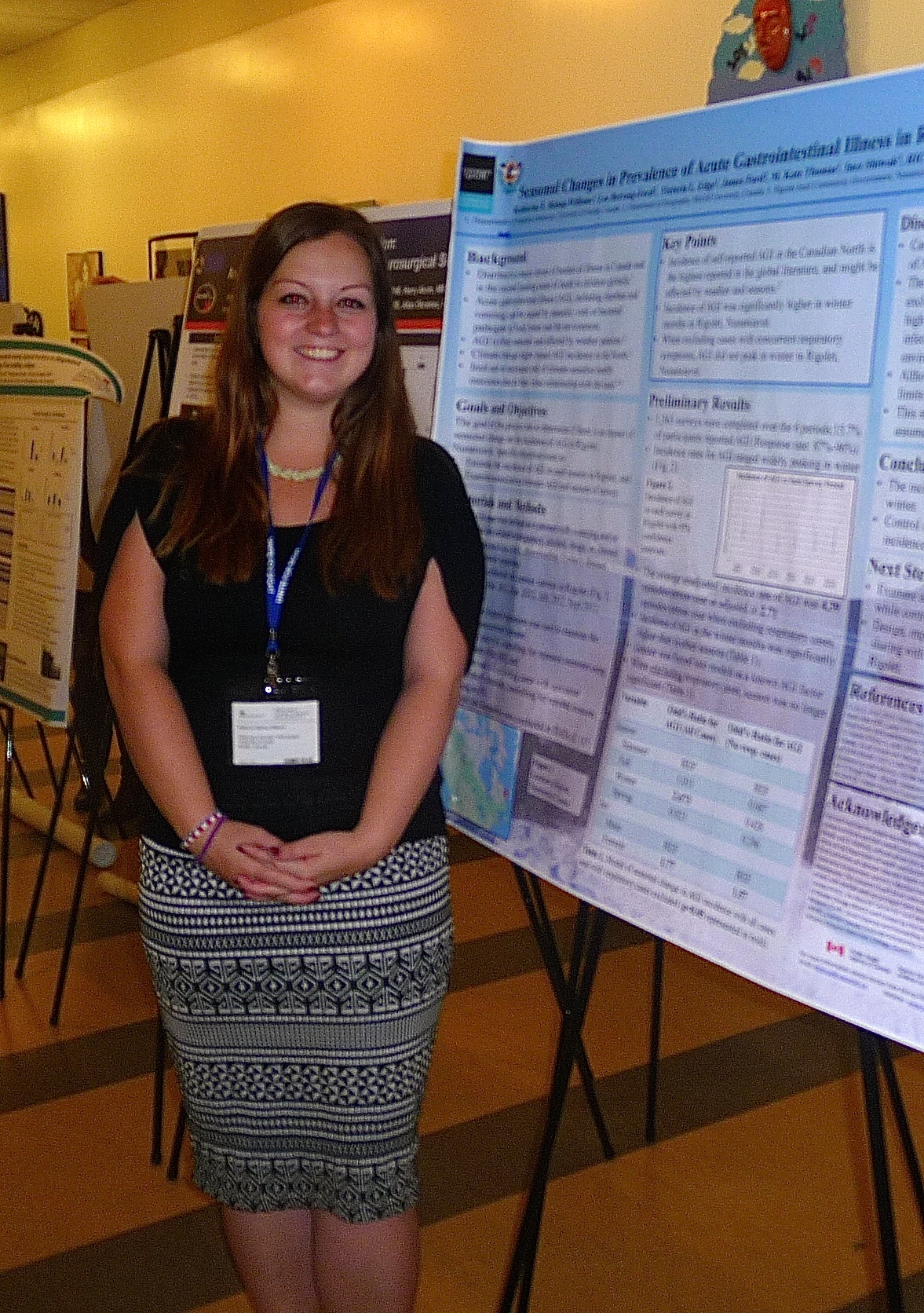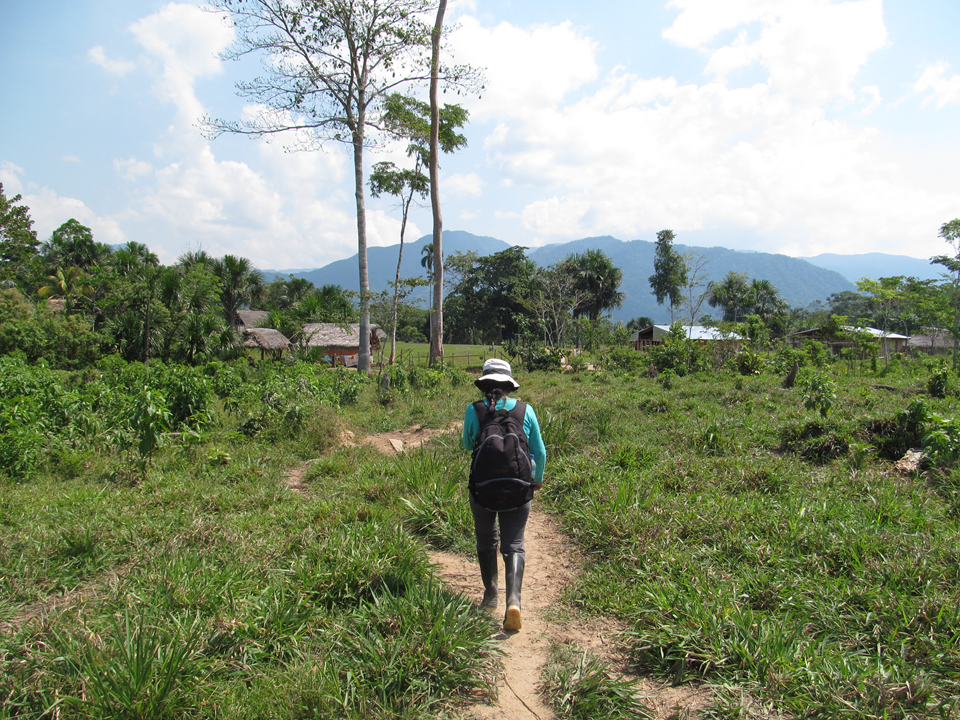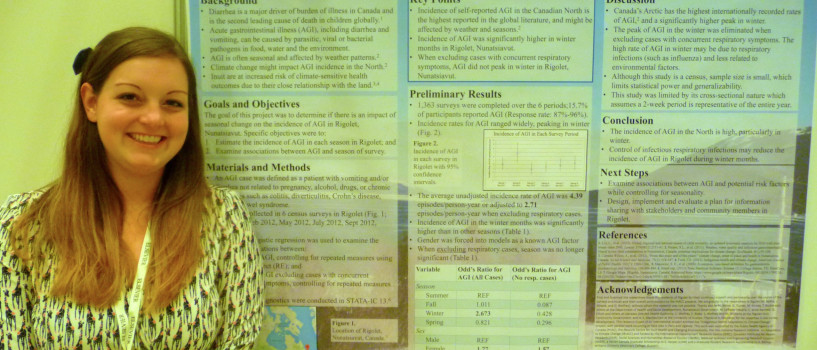 Sierra is presenting her honours thesis work looking at the burden, determinants and experience of self-reported acute gastrointestinal illness (AGI) among an indigenous Batwa-Pygmy population in southwestern Uganda at the Geography Honours poster session today at McGill University. We take this opportunity to congratulate Sierra on her thesis work. If you are interested in learning more about Sierra's work, please read her latest article, published in Epidemiology and Infection in December 2014:
Sierra is presenting her honours thesis work looking at the burden, determinants and experience of self-reported acute gastrointestinal illness (AGI) among an indigenous Batwa-Pygmy population in southwestern Uganda at the Geography Honours poster session today at McGill University. We take this opportunity to congratulate Sierra on her thesis work. If you are interested in learning more about Sierra's work, please read her latest article, published in Epidemiology and Infection in December 2014:
Clark, S., Berrang-Ford, L., Lwasa, S., Namanya, D.B., Edge, V.L., IHACC Research Team, and Harper, S. (2014).The burden and determinants of self-reported acute gastrointestinal illness in an Indigenous Batwa Pygmy population in southwestern Uganda. Epidemiology and Infection, [Epub ahead of print].
Abstract
Acute gastrointestinal illness (AGI) is an important public health priority worldwide. Few studies have captured the burden of AGI in developing countries, and even fewer have focused on Indigenous populations. This study aimed to estimate the incidence and determinants of AGI within a Batwa Pygmy Indigenous population in southwestern Uganda. A retrospective cross-sectional survey was conducted in January 2013 via a census of 10 Batwa communities (n = 583 participants). The AGI case definition included any self-reported symptoms of diarrhoea or vomiting in the past 2 weeks. The 14-day prevalence of AGI was 6·17% [95% confidence interval (CI) 4·2-8·1], corresponding to an annual incidence rate of 1·66 (95% CI 1·1-2·2) episodes of AGI per person-year. AGI prevalence was greatest in children aged <3 years (11·3%). A multivariable mixed-effects logistic regression model controlling for clustering at the community level indicated that exposure to goats [odds ratio (OR) 2·6, 95% CI 1·0-6·8], being a child aged <3 years (OR 4·8, 95% CI 1·2-18·9), and being a child, adolescent or senior Batwa in the higher median of wealth (OR 7·0, 95% CI 3·9-9·2) were significantly associated with having AGI. This research represents the first Indigenous community-census level study of AGI in Uganda, and highlights the substantial burden of AGI within this population.










